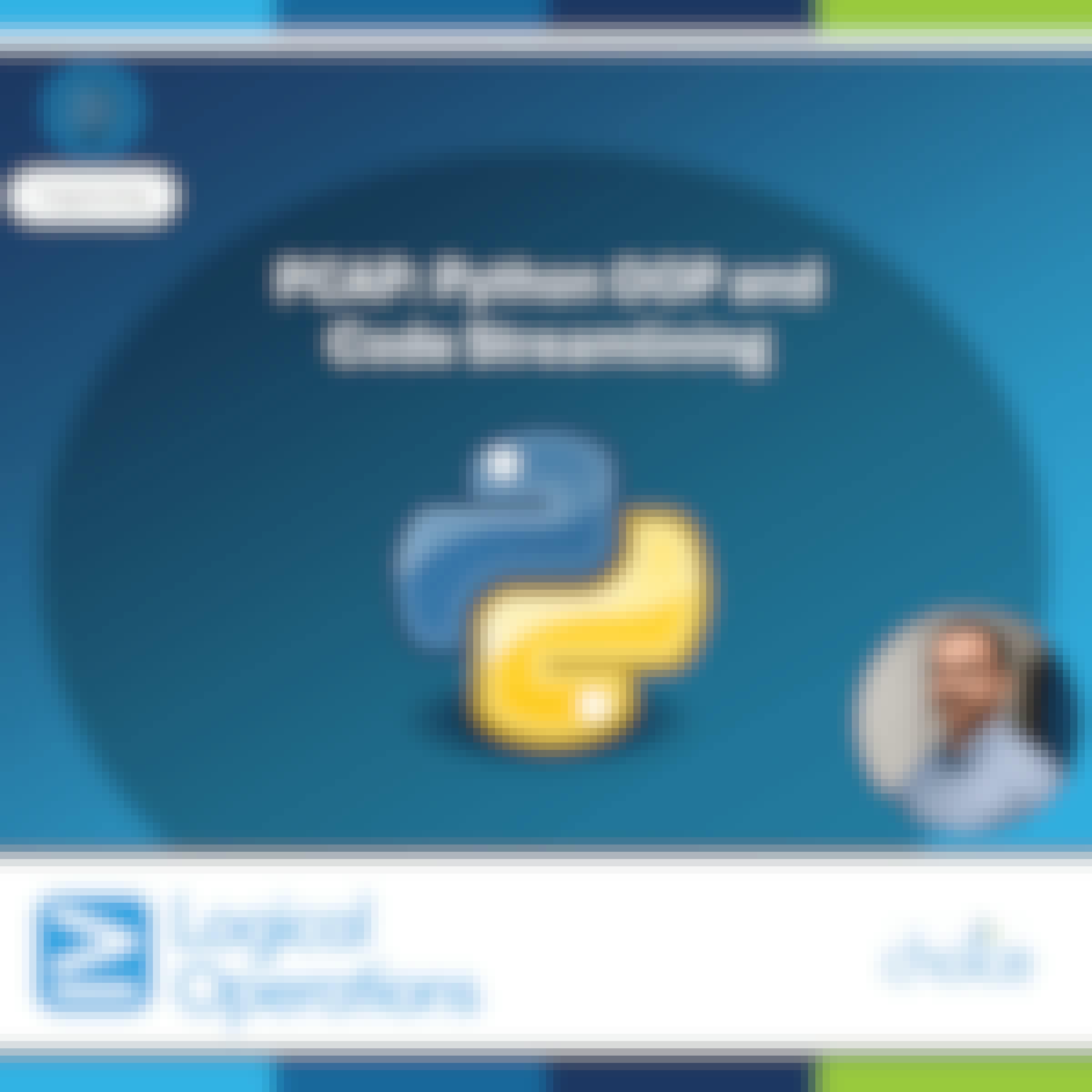- Browse
- Logic
Logic Courses
Logic courses can help you learn critical thinking, argument analysis, propositional logic, and logical reasoning techniques. You can build skills in evaluating arguments, identifying fallacies, and constructing sound conclusions. Many courses introduce tools like truth tables, Venn diagrams, and formal proof systems, which you can use to analyze complex problems and enhance decision-making processes.
Popular Logic Courses and Certifications
 Status: NewNewStatus: Free TrialFree TrialL
Status: NewNewStatus: Free TrialFree TrialLLogical Operations
Skills you'll gain: Object Oriented Programming (OOP), File I/O, Python Programming, Operating Systems, Package and Software Management, Data Import/Export, Computer Programming, Development Environment, Object Oriented Design, Scripting, File Management, Scripting Languages, Programming Principles, Data Processing, Debugging, Program Development, Cross Platform Development, Computer Programming Tools, Software Development, Data Structures
Intermediate · Specialization · 1 - 3 Months
 Status: Free TrialFree TrialV
Status: Free TrialFree TrialVVanderbilt University
Skills you'll gain: Android Studio, Android Development, Object Oriented Programming (OOP), Java Programming, Java, Mobile Development, Data Structures, Integrated Development Environments, Computer Programming, Debugging, Algorithms
4.5·Rating, 4.5 out of 5 stars3.1K reviewsBeginner · Course · 1 - 3 Months
 Status: NewNewStatus: Free TrialFree Trial
Status: NewNewStatus: Free TrialFree TrialSkills you'll gain: Programmable Logic Controllers, Performance Tuning
Advanced · Course · 1 - 3 Months
 Status: Free TrialFree TrialU
Status: Free TrialFree TrialUUniversity at Buffalo
Skills you'll gain: Model Based Systems Engineering, Peer Review, Programmable Logic Controllers, Systems Engineering, Product Lifecycle Management, Intrusion Detection and Prevention, Security Controls, Performance Measurement, Collaborative Software, Control Systems, Continuous Monitoring, Anomaly Detection, Machine Controls, Incident Response, Digital Transformation, Vulnerability Assessments, Software Development Life Cycle, Production Process, Cybersecurity, Manufacturing Operations
4.6·Rating, 4.6 out of 5 stars7K reviewsBeginner · Specialization · 3 - 6 Months
 Status: NewNew
Status: NewNewSkills you'll gain: Database Application, Full-Stack Web Development, Web Applications, Model View Controller, Authentications, Business Logic, SQL
Beginner · Course · 1 - 4 Weeks
 Status: NewNewStatus: Free TrialFree Trial
Status: NewNewStatus: Free TrialFree TrialSkills you'll gain: Relational Databases, Requirements Analysis, Application Deployment, Database Design, Database Management, Business Requirements, C# (Programming Language), Application Development, Data Validation, Business Logic, UI Components, Data Access, User Interface (UI) Design
Intermediate · Course · 1 - 4 Weeks
 Status: NewNewStatus: Free TrialFree Trial
Status: NewNewStatus: Free TrialFree TrialSkills you'll gain: Object Oriented Programming (OOP), C++ (Programming Language), Application Development, Object Oriented Design, Application Design, Program Development, Business Logic, User Interface (UI), Data Entry, Verification And Validation, Command-Line Interface, Data Validation
Intermediate · Course · 1 - 4 Weeks
 Status: NewNewStatus: Free TrialFree TrialL
Status: NewNewStatus: Free TrialFree TrialLLogical Operations
Skills you'll gain: Object Oriented Programming (OOP), Object Oriented Design, Python Programming, Computer Programming, Code Review, Programming Principles, Maintainability, Scripting, Scripting Languages, Software Development
Mixed · Course · 1 - 4 Weeks
 Status: NewNewStatus: Free TrialFree Trial
Status: NewNewStatus: Free TrialFree TrialSkills you'll gain: C# (Programming Language), Object Oriented Programming (OOP), Software Design Patterns, Software Architecture, Software Design, Secure Coding, Computer Programming, System Design and Implementation, Data Integrity, Maintainability, Scalability, Programming Principles, Code Review, Software Documentation, AI Workflows, Debugging
Beginner · Course · 1 - 3 Months
 Status: NewNewStatus: Free TrialFree Trial
Status: NewNewStatus: Free TrialFree TrialSkills you'll gain: Simulation and Simulation Software, Programmable Logic Controllers, Industrial Engineering, Control Systems, Electronic Hardware, Data Structures, Data Management
Intermediate · Course · 1 - 3 Months
 Status: NewNewStatus: Free TrialFree Trial
Status: NewNewStatus: Free TrialFree TrialSkills you'll gain: Business Logic, User Interface (UI), Application Development, Web Applications, Software Design
Beginner · Course · 1 - 4 Weeks
 Status: NewNewStatus: Free TrialFree TrialA
Status: NewNewStatus: Free TrialFree TrialAAlex Genadinik
Skills you'll gain: Decision Making, Strategic Decision-Making, Emotional Intelligence, Data-Driven Decision-Making, Critical Thinking, Business Leadership, Analytical Skills, Leadership, Behavioral Economics, Case Studies, Microsoft Excel, Entrepreneurship, Self-Awareness
Mixed · Course · 1 - 3 Months
In summary, here are 10 of our most popular logic courses
- Certified Associate in Python Programming (PCAP): Logical Operations
- Java for Android: Vanderbilt University
- Advanced Programming with Ladder, FBD & Structured Text: Packt
- Digital Manufacturing & Design Technology: University at Buffalo
- Build a Role-Based Java Web Application: EDUCBA
- Build a C# WinForms Exhibition Visitor Entry System: EDUCBA
- Build a C++ Employee Payroll Project from Scratch: EDUCBA
- PCAP: Python OOP and Code Streamlining: Logical Operations
- Advanced C# Language Features & Object-Oriented Programming: Microsoft
- Foundations of Micro850 PLC Programming: Packt










